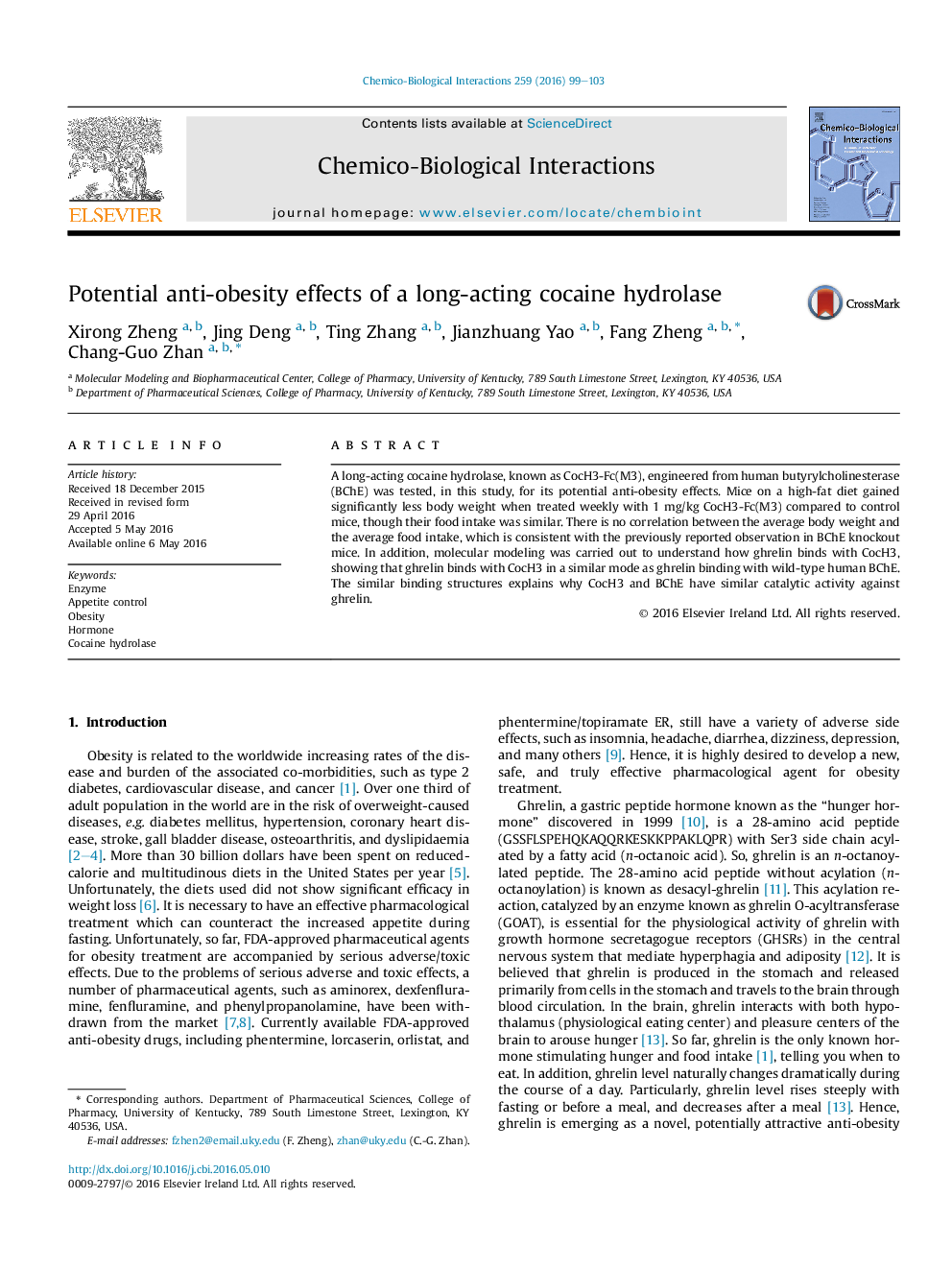| Article ID | Journal | Published Year | Pages | File Type |
|---|---|---|---|---|
| 5559509 | Chemico-Biological Interactions | 2016 | 5 Pages |
•Weekly dosing of a long-acting CocH significantly affected body weights of mice.•Weekly dosing of the long-acting CocH did not affect food intake of the mice.•Ghrelin binds with the CocH and wild-type human BChE in a similar binding mode.•The CocH may be valuable for treatment of not only cocaine abuse, but also obesity.
A long-acting cocaine hydrolase, known as CocH3-Fc(M3), engineered from human butyrylcholinesterase (BChE) was tested, in this study, for its potential anti-obesity effects. Mice on a high-fat diet gained significantly less body weight when treated weekly with 1 mg/kg CocH3-Fc(M3) compared to control mice, though their food intake was similar. There is no correlation between the average body weight and the average food intake, which is consistent with the previously reported observation in BChE knockout mice. In addition, molecular modeling was carried out to understand how ghrelin binds with CocH3, showing that ghrelin binds with CocH3 in a similar mode as ghrelin binding with wild-type human BChE. The similar binding structures explains why CocH3 and BChE have similar catalytic activity against ghrelin.
